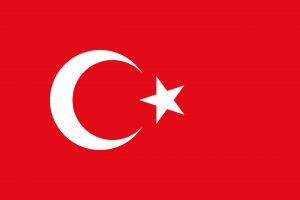Language/Turkish/Vocabulary/Greeting
 Հայերէն
Հայերէն Български език
Български език 官话
官话 官話
官話 Hrvatski jezik
Hrvatski jezik Český jazyk
Český jazyk Nederlands
Nederlands English
English Suomen kieli
Suomen kieli Français
Français Deutsch
Deutsch עברית
עברית हिन्दी
हिन्दी Magyar
Magyar Bahasa Indonesia
Bahasa Indonesia فارسی
فارسی Italiano
Italiano 日本語
日本語 Қазақ тілі
Қазақ тілі 한국어
한국어 Lietuvių kalba
Lietuvių kalba Νέα Ελληνικά
Νέα Ελληνικά Şimali Azərbaycanlılar
Şimali Azərbaycanlılar Język polski
Język polski Português
Português Limba Română
Limba Română Русский язык
Русский язык Српски
Српски Español
Español العربية القياسية
العربية القياسية Svenska
Svenska Wikang Tagalog
Wikang Tagalog தமிழ்
தமிழ் ภาษาไทย
ภาษาไทย Українська мова
Українська мова Urdu
Urdu Tiếng Việt
Tiếng ViệtGreetings are essential in any culture around the world, and Turkey is no exception. As a Turkish language teacher with 20 years of experience, I can tell you that mastering these basic phrases will go a long way in making you feel confident in any social situation in Turkey. In this lesson, we will cover the most common Turkish greetings and other everyday phrases that will help you communicate more effectively with locals.
Greetings
Turkish culture values warmth and friendliness, so it's essential to greet people you encounter politely. Here are some basic Turkish greetings:
Merhaba
Merhaba is the basic Turkish greeting. It's similar to saying "hello" in English and can be used in both formal and informal settings. Its pronunciation is [mɛrhaba].
Selam
Selam is a casual way of saying hello in Turkish. It's mainly used between friends and people from the same generation. Its pronunciation is [sɛlam].
İyi Günler
İyi günler means "good day" and is a formal greeting that you can use throughout the day. Its pronunciation is [ijɪ ɡy̆nleɾ].
İyi Akşamlar
İyi akşamlar means "good evening" and is an appropriate greeting to use after sunset. Its pronunciation is [ijɪ akʃamlar].
İyi Geceler
İyi geceler means "good night" and is used when saying goodbye at night or before going to bed. Its pronunciation is [ijɪ ɡedʒɛlɛɾ].
In Turkey, people usually greet each other by shaking hands or a kiss on both cheeks, especially in more formal settings. It's customary to shake hands with older people first. However, amongst people of the same age and gender, hugs and friendly punches on the shoulder or chest are also quite common.
Other Everyday Phrases
Besides greeting people, there are other essential everyday phrases that you'll need to know to get by in Turkey:
Nasılsın?
Nasılsın? means "how are you?" in Turkish. Its pronunciation is [naː'sɯl.sɯn]. This is a standard way of asking someone about their well-being, and asking a friend or acquaintance how they're doing is an excellent conversation starter in Turkey.
İyi, teşekkür ederim; ya sen?
After someone asks you "nasılsın?", you can answer with "İyi, teşekkür ederim; ya sen?" meaning "I'm good, thank you, and you?". Its pronunciation is [ijɪ tɛʃɛkkyr ɛdɛɾim ja sɛn]. This is a polite and standard answer that will work in most situations.
Lütfen
Lütfen means "please" in Turkish. Its pronunciation is [l̴yt̴'fɛn]. Remember to use it when asking for something or when trying to be polite.
Teşekkür ederim
Teşekkür ederim means "thank you" in Turkish. Its pronunciation is [tɛʃɛkkyɾ edɛɾim]. You'll hear this word a lot in Turkey, so don't forget to use it to express your gratitude!
Bira, lütfen
Finally, here's a phrase you can use when ordering a beer in Turkey: "Bira, lütfen." This means "a beer, please" and its pronunciation is [biɾa l̴yt̴'fɛn].
Table 1 below shows the basic Turkish greetings and some of their variations:
| Turkish | Pronunciation | English |
|---|---|---|
| Merhaba | [mɛrhaba] | Hello |
| Selam | [sɛlam] | Hi |
| İyi Günler | [ijɪ ɡy̆nleɾ] | Good day |
| İyi Akşamlar | [ijɪ akʃamlar] | Good evening |
| İyi Geceler | [ijɪ ɡedʒɛlɛɾ] | Good night |
Practice Makes Perfect
Learning new phrases is crucial, but using them actively in real-life situations is equally important. I recommend that you try to practice these greetings and phrases with Turkish locals whenever possible. They will be happy to hear that you're trying to learn and communicate in their language, so don't be shy and give it a try.
Sources
Videos
Learn Turkish - Turkish in Three Minutes - Greetings - YouTube
Turkish Greetings: How to Say Hello in Turkish - YouTube
Learn Turkish Lesson 1 Greetings | Animated - YouTube
Related Lessons
- How to say Good Bye?
- Seasons
- Valentines Day
- Vegetables
- Drinks
- Body
- Free Time Activities
- Months of the Year
- Asking for Directions
- Society

